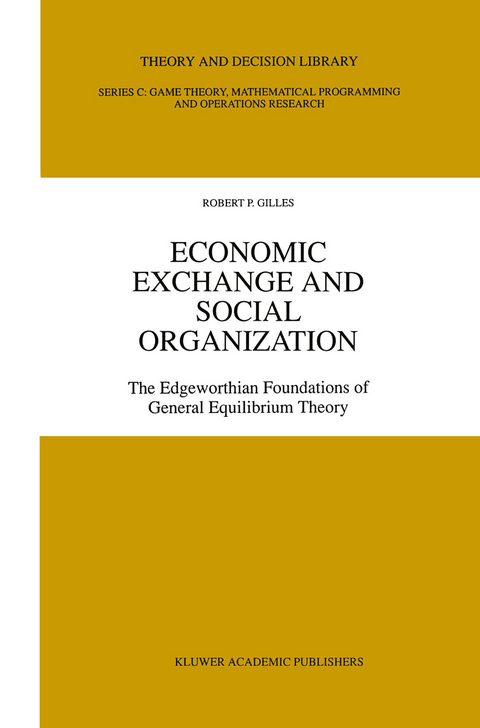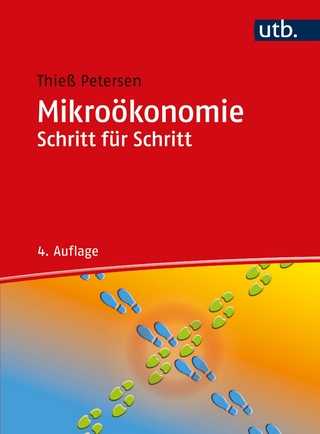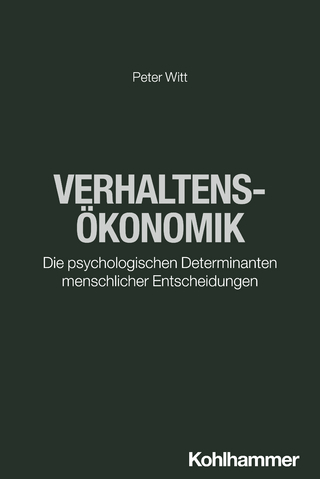
Economic Exchange and Social Organization
Springer-Verlag New York Inc.
978-1-4612-8549-6 (ISBN)
This book aims to develop an institutional approach to general economic equi librium. Thus far, institutional economics has essentially been confined to purely verbal discourse. Here I argue the case that general equilibrium theory forms a well rounded basis for the development of an institutional economic the ory. The fundamental economic trade mechanism underlying this refocusing is that of the Edgeworthian barter mechanism modelled through the equilibrium notion of the core of an economy. There is an extensive literature that links the core with the Walrasian price mechanism, which is explored in this book. Next I develop an alternative model of explicitly nonsovereign trade in the setting of an institutionally structured economy. In this book the core and several of its extensions are considered to be descriptions of the equilibrium allocations resulting from institutionalized barter processes, thereby providing a basis of an institutionally based economic theory. Traditionally finite economies have been assessed as the most natural represen tations of real life economies, in particular of market economies. Many funda mental insights have been developed. In the first half of the book I summarize the most influential and important results in the literature on finite economies regarding the relationship of the Walrasian model of a perfectly competitive market system and the Edgeworthian theory of individually based, pure barter processes. I use the axiomatic method as the main methodological framework according to which I construct my models.
1 Scarcity and Gains from Trade.- 1.1 Gains from trade.- 1.2 Walrasian markets.- 1.3 Edgeworthian barter.- 1.4 Some historical roots.- 2 The Foundations of General Equilibrium.- 2.1 A reconstruction of commodity exchange.- 2.2 Preferences.- 2.3 Exchange systems.- 2.4 Problems.- 3 The Principles of Individual Exchange.- 3.1 Edgeworthian barter and markets.- 3.2 Existence of Walrasian equilibria.- 3.3 Edgeworthian stability.- 3.4 Problems.- 4 Properties of the Core in Finite Economies.- 4.1 Replica economies and equal treatment.- 4.2 The Debreu-Scarf theorem.- 4.3 The Vind-Anderson comparison theorem.- 4.4 Problems.- 5 The Primitives of Coalitional Exchange.- 5.1 Primitive coalitional structures.- 5.2 Contracts and trade coalitions.- 5.3 Social feasibility.- 5.4 Exchange systems.- 5.5 Problems.- 6 Barter in Coalitionally Structured Economies.- 6.1 Walrasian markets and the core.- 6.2 Edgeworthian barter processes.- 6.3 Core-Walras equivalence.- 6.4 Problems.- 7 Perfect Competition.- 7.1 Some examples.- 7.2 A non-equivalence theorem.- 7.3 Edgeworth versus Cournot.- 7.4 Perfect competition as a pathology.- 7.5 A changing world order.- 7.6 Problems.- References.
| Reihe/Serie | Theory and Decision Library C ; 12 |
|---|---|
| Zusatzinfo | XII, 312 p. |
| Verlagsort | New York, NY |
| Sprache | englisch |
| Maße | 155 x 235 mm |
| Themenwelt | Wirtschaft ► Allgemeines / Lexika |
| Wirtschaft ► Volkswirtschaftslehre ► Mikroökonomie | |
| Wirtschaft ► Volkswirtschaftslehre ► Ökonometrie | |
| ISBN-10 | 1-4612-8549-6 / 1461285496 |
| ISBN-13 | 978-1-4612-8549-6 / 9781461285496 |
| Zustand | Neuware |
| Haben Sie eine Frage zum Produkt? |
aus dem Bereich


